Content Management Systems Head to Head
To follow-up on our article on why your business needs a Content Management System here is a brief review of the available Content Management Systems. These are just some of the options, we have included this line up because we support these systems in any of our web hosting packages.
Whether you want to build the next big social networking site or a personal weblog, there is a CMS for you. Rather than searching for the CMS that does it all, choose the solution that best fits your project’s or site requirements.
Here is an overview of four top open source content management systems: CMS Made Simple, Drupal, Joomla!, and WordPress. I describe their differences and similarities based on my experience with them. We currently us WordPress for our projects.
Content Management Systems – The similarities
All four Content Management Systems are free and licensed under the GNU General Public License. Their server-side code is written in PHP, and they use MySQL as the database. And all four are operating system–independent. We support all 4 systems and have been fully tested on our servers.
All four Content Management Systems have:
- Online communities and support
- Developers who contribute modules/plugins
- Human-readable and search engine–friendly URLs
- Web browser WYSIWYG interfaces
- Themes and templates
- Translations and multilingual content integration
- Syndication of content in RSS/XML
Some of the features you can create with them:
- Blogs
- Contact forms
- Events calendars
- Guest books
- Image galleries
- Online newsletters
- Search engines
While these four Content Management Systems have many similarities, each one also has unique benefits and limitations. The following sections describe each system and makes comparisons based on experience.
 CMS Made Simple
CMS Made Simple
www.cmsmadesimple.org
CMS Made Simple and Drupal both include workflow engines for process management beyond basic approval of content. You can get up to speed much faster with CMS Made Simple, but Drupal has far more features (which you may or may not need).
I found that setting up a CMS Made Simple site was very straightforward, but not nearly as easy as using WordPress. Creating site navigation is easy, and you can quickly launch a simple site.
CMS Made Simple, Drupal, and WordPress all follow the W3C specification for XHTML compliance.
Theme templates enable you to easily update your site’s layout, and modules extend functionality.
CMS Made Simple Feature List:
- SEO Friendly URLs
- Integrated and online help
- Modular and extensible
- Easy user and group management
- Group-based permission system
- Full template support, for unlimited looks without changing a line of content
- Easy wizard based install and upgrade procedures
- Minimal server requirements
- Admin panel with multiple language support
- Content hierarchy with unlimited depth and size
- Integrated file manager w/ upload capabilities
- Integrated audit log
- Friendly support in forums
- Small footprint
The documentation is not as extensive as the other Content Management Systems reviewed, however as with most of the open source solutions they have a great community forum for support and questions.
 Drupal
Drupal
www.drupal.org
Drupal is pronounced droo-puhl. Drupal has extensive online documentation, supplemented with active forums, and Drupal.org is chock-full of instructions to help you get started.
I’ve found that Drupal is flexible and accessible, it is a powerful solution for a wide variety of projects. However, its vast features may be too much of a good thing if you are only planning to build a simple blog or simple content site.
After installing modules, the process of enabling, setting, and configuring permissions feels a bit daunting. Locating the areas to perform each of these tasks in the Administration menu can be challenging until you have done it a few times.
Drupal Feature List:
- SEO Friendly URLs
- Modular and extensible
- Users and Permissions
- User and Group-based permission system
- Full template support
- Wizard based install and upgrade procedures
- Admin panel
- Dashboard
- jQuery and jQuery UI integration
- Integrated file manager w/ upload capabilities
- Integrated audit log
- Friendly support in forums
Drupal really shines in the way taxonomy and permissions can be assigned at a granular level. Rather than being limited to groups, each user can each have their own access levels. And the level of categorization in Drupal is unlimited.
 Joomla!
Joomla!
www.joolma.org
Joomla is a very popular system, and on Joomla’s site they claim 2.7% of the websites on the internet are powered by Joomla.
Developers create free extensions to add functionality, and these are available in the Joomla! extensions directory. Joomla! supports e-commerce functionality, such as shopping carts, inventory tracking, and payment processing through third-party vendors.
Joomla! Feature List:
- SEO Friendly URLs
- Powerful Extensibility
- User Management
- Media Manager
- Integrated Help System
- Template Management
- Language Manager
- Banner Management
- Contact Management
- Polls
- Search
- Web Link Management
- Menu Manager
Although I haven’t experienced it myself, I have read that sites with high traffic report slower load times.
 WordPress
WordPress
www.wordpress.org
Since 2003, WordPress has become the largest self-hosted blogging software in the world, visited by millions of people every day. With the recent advances in the platform it is no longer just a blogging platform but a full content management system.
Support for the platform is extensive with hundreds of themes, plugins and frameworks to help you develop your website on the WordPress platform.
According to WordPress.org 25 million people have chosen WordPress for their website or blog.
There are many online resources, such as the very clear online documentation, tutorial sites, and plug-ins you can download to extend functionality.
WordPress Feature List:
- SEO Friendly URLs
- Powerful Extensibility with Plugins
- User Management
- Media Manager
- Integrated Help System
- Theme Management
- Built-in Update Manager
- Full standards compliance
- WordPress Pages
- Built in Blogging Tools
- Search
- Cross-blog communication tools
- Menu Manager
- Multiple authors
WordPress is our choice, its ease of use for content contributors, and development and customization options make it the platform we recommend to our clients.
What comments can you share on these Content Management Systems? Of if you have other suggestions please share in the comments below.





